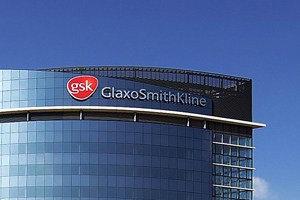 The UK’s Competition & Markets Authority has fined GlaxoSmithKline (GSK) and several other companies for delaying the availability of generic versions of its antidepressant Seroxat.
The UK’s Competition & Markets Authority has fined GlaxoSmithKline (GSK) and several other companies for delaying the availability of generic versions of its antidepressant Seroxat.
The culmination of the investigation is a £37.6m (around $55m) fine for GSK and smaller penalties for other companies involved in the ‘pay-for-delay’ scheme, including Merck KGaA and Actavis which have both been fined for the involvement of various generics units.
The CMA’s decision relates to activities between 2001 and 2004 in which GSK agreed to pay £50m to companies supplying generic versions of Seroxat (paroxetine) in order to delay their entry into the UK market. UK sales of GSK’s brand were £90m in 2001, says the agency.
The actions “deferred the competition that the threat of independent generic entry could offer, and potentially deprived the National Health Service [NHS] of the significant price falls that generally result from generic competition”, according to the CMA.
When generics finally entered the market in 2003, average paroxetine prices dropped by more than 70% within two years.
Former Merck subsidiary Generics (UK) Ltd and Alpharma (acquired by Actavis in 2005) had been sued by GSK for patent infringement but the cases were dropped after the agreements to defer launches were made.
Now, Merck has been fined £5.8m with regard to the involvement of GSK, while Actavis UK Ltd is facing a penalty of £1.5m for the actions of Alpharma and other subsidiaries including Xellia Pharma and Zoetis Products LLC.
The UK’s Office of Fair Trading (OFT) formally accused GSK of delaying generic paroxetine sales back in 2013. At the time, the pharma company insisted that it had acted within the law and said similar claims had been investigated by the EU authorities, which concluded in 2012 that no further action was necessary.
GSK says it rejects the CMA’s interpretation of the events. In a prepared statement the company maintains that the deals with the generic companies were agreed “in order to settle costly, complex and uncertain patent disputes”.
“The agreements allowed the generics companies to enter the market early with a paroxetine product and ultimately enabled a saving of over £15m to the NHS”, it adds.
Seroxat had been due to be sold off by GSK as part of a plan to divest its established medicines business, but the company changed its mind at the end of 2014 and decided to hold on to the portfolio.




